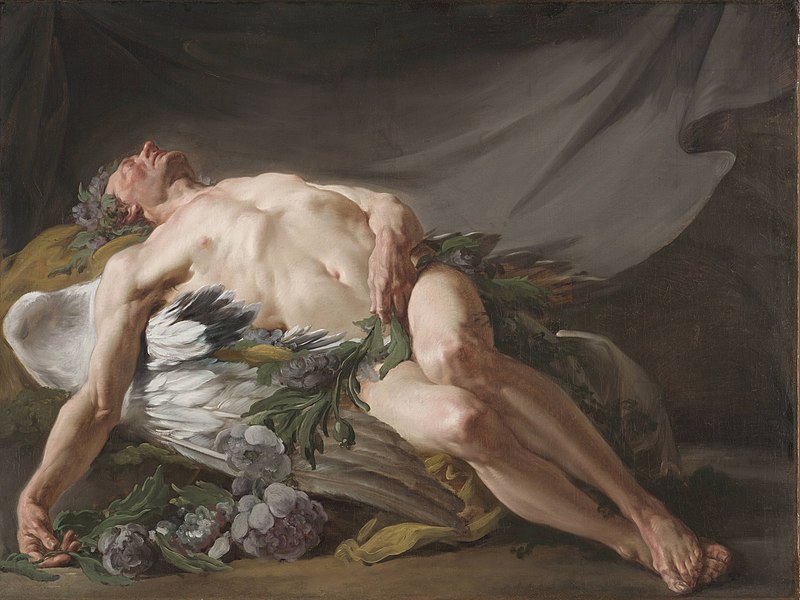In Greek and Roman mythology, there were gods of sleep and dreams. The gods of sleep and dreams in Greek and Roman mythology all had the ability to control and shape what was going on in the minds of humans.
1. The gods of sleep
Greek mythology features the god of sleep, Hypnos, who was depicted as a beautiful man. He had the ability to create fantastic dreams and manipulate the minds of humans, and many feared his power. The word hypnotherapy comes from Hypnos, the god of sleep. In Roman mythology, Somnus was the equivalent of Hypnos as the god of sleep. Somnus is also depicted as a male and has the ability to lure humans into dreams. The gods of sleep are depicted as both seductive and terrifying. The word insomnia is composed of the prefix "in", meaning unclean, "somn", from somnus, the god of sleep, and the suffix "~ia", meaning state. When you combine ambulare, meaning to walk, with somnus, you get somnambulism.

Somnambulism(sleepwalking) - a condition in which an individual walks or performs other activities while asleep. The term "somnambulism" comes from the Latin word "somnus" meaning sleep, and "ambulare" meaning to walk.
Insomnia - a sleep disorder characterized by difficulty falling asleep or staying asleep. The term "insomnia" comes from the Latin word "somnus" meaning sleep, and the prefix "in-," meaning not.
2. Dream Gods
In Greek mythology, the gods of dreams are called Oneiroi. The Oneiroi are always described in the plural, and are said to be the sons of the night goddess Nyx, who bore them alone. In Roman mythology, the god of dreams is called Morpheus. As in Greek mythology, Morpheus has the ability to shape people in their dreams. Thus, he shaped all kinds of dreams that occurred in the minds of humans, creating the likenesses of the characters they might encounter in their dreams. Hence, morph means to shape. In medicine, morphology is the study of shape. Even the narcotic painkiller morphine comes from morph, because it makes you hallucinate like you're dreaming.

Morpheus, painted by Jean-Bernard Restout
Morphology: Morphology - the study of the form and structure of organisms and their parts. The term "morphology" comes from the Greek god of dreams, Morpheus.
Morphogenesis: Morphogenesis - the biological process by which an organism develops its shape and form. The term "morphogenesis" comes from the Greek god of dreams, Morpheus. The development of morphological evolution. The development of the form of a particular organ or body part, or the developmental process by which an individual attains the form possessed by most of the species to which it belongs.
Morphine - a potent analgesic drug that is used to relieve severe pain. The name "morphine" comes from the Greek god of dreams, Morpheus. A drug of the opium family. It is extracted from the so-called poppy. Drugs that are extracted directly from poppies are called opiates, but drugs that are chemically altered to change the duration or degree of action are called opioids.
3. Night Gods
In Greek mythology, the god of night is Nyx. Nyx was a primeval goddess in Greek mythology, deified as the "goddess of the night" and the "night" itself. She is also known as the daughter of Chaos or the daughter of Gaia, the goddess of chaos and all things. Nix was a goddess that not even Zeus, the ruler of Olympus, dared to mess with. As the ruler of the night, she was said to be very beautiful. In Roman mythology, the god of night is called Nox. She, too, is depicted as beautiful and mesmerizing. Musical compositions inspired by the night are called nocturnes, which were often played at dinner parties in the 18th century. The word nocturne comes from Nox, the god of night. In medicine, nocturnal means "of the night, of the night." The word nocturia comes from noct, meaning night, and uria, meaning urine.

Nyx, Goddess of the Night by William-Adolphe Bouguereau
If you remember Somnambulism from earlier, instead of somn, which means sleep, we combined noct, which means night, with ambulism, which means walking around at night. Somnambulism is called sleepwalking and noctambulism is called night walking. It's the same thing.
There was a movie not too long ago called The Night Owl, right? It's about an acupuncturist who has day blindness, and day blindness is called hemeralopia. "Opia" means "the state of seeing." Hemera is the goddess of day in Greek mythology. Nyctalopia is a combination of nyct, from the goddess of night, and opia, which means to see. In English, it is called night blindness or moon blindness. There is also a day goddess, Hemera, a night goddess, Nyx, and a dawn goddess, eos.
- Nocturnal- Relating to or occurring during the night.
- Nocturia - a condition characterized by excessive urination at night. The term "nocturia" comes from the Latin goddess of night, Nox, and the Greek word "ouron," meaning urine.
- noctambulation (night walking)- a condition where a person